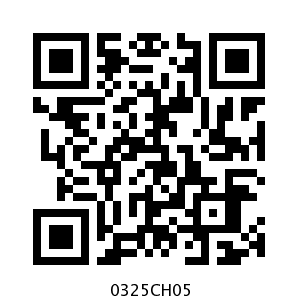Table of Contents
5. Shapes and Designs
Make a Clapper






Have Fun with Shapes
Colour the clown following the directions given below:
Triangles
Squares
Rectangles
Circles

How many triangles are there in the following figures?


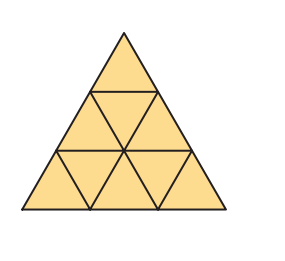
Find the biggest rectangle in the figures given below.

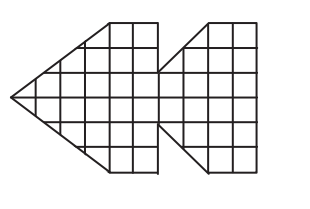
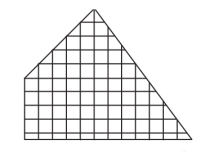

Edges and Corners
Meeta and her 5 friends were playing a game. Tinku was blindfolded and asked to keep clapping as long as he wished while the others would move round a table. The moment Tinkus topped clapping, everybody would stop wherever they were. The child who was not at a corner would be out. Then she/he would be blindfolded.

a) Looking at the picture given above, can you tell who is out?
b) Where is Guddu standing?
c) Can this game be played around a round table? Why?
Many things around us have straight edges. For example:



Other things have curved edges. For example:


a) Look around you and identify things with straight and curved edges.
b) Do the things with straight edges have corners?
c) Do the things with curved edges have corners?
d) Try to find things which have both straight and curved edges.
Activity Time
1. Take a rectangular sheet of paper.
2. Count its corners.
3. Now fold one of its corners.

a) How many corners does it have now?
b) How many corners will you get by folding.
i) 2 corners
ii) 3 corners
iii) 4 corners
c) Can you fold this paper in such a way that it has only three corners? You are allowed only two folds. What shape will you get?
4. Repeat the activity with a square sheet of paper.
5. Can you fold all the corners of the square sheet in such a way that the number of corners remains unchanged?
Look at the following table and tick the names of things that have corners. Also count the number of edges and corners in each of them.
| Name of thing | Whether it has corners | Number of edges | Number of corners |
| Die | yes |
| 8 |
| Ball |
|
|
|
| Eraser |
|
|
|
| Egg |
|
|
|
| Sheet of paper |
|
|
|
In the following figures, tick those which have corners. Do these figures have curved lines?

Using only straight lines, can you draw a figure which has no corners?
Tangram
The tangram is an old Chinese puzzle. From the pieces of the tangram, we can make many shapes of animals, people and things.
At the back of the book you will find a square like the one in this figure. Cut it out carefully and cut the pieces. This set of five pieces is called the 5-piece tangram.

Use these five pieces to make the following figures:

1. How many triangles do you have in your set? Are all of them equal in size? Find out.
2. Use the two small triangles in the tangram set to get the following shapes:
3. Which two pieces of the tangram set are exactly same?
Find out.
4. Take pieces 4 and 5 from the set and find out on which side of the triangle you can join the other piece.
5. Find matching sides among the following pairs of pieces.
a) Pieces 1 and 2
b) Pieces 2 and 4 (See figure on page 66)
c) Pieces 1 and 5
d) Pieces 2 and 5
The 7–piece tangram
Here is the picture of a seven–piece tangram.

You can cut out these pieces and put them together in different ways to make some very interesting shapes.
Try making these shapes.


Now try making the following shapes using only the pieces written here:
i) Use only triangles

ii) Use pieces 1, 2, 3 and 5

iii) Use only two triangles

iv) Use pieces 1, 2, 3, 4 and 5

Weaving Patterns
Golu and Binu went to the market with their aunt. They saw many rugs (durries).

- Which geometrical shapes can you identify in these borders? Draw them in your notebook.
- Is any shape repeating in a particular pattern? Which ones?
- Are the shapes made of
- Curved lines
- Straight lines
- Both curved and straight lines.
- Look at your clothes, your mother's saris/shawls, rugs and mats. Can you identify some patterns? Draw them in your
Floor Patterns
Have you ever seen a floor which has designs?

Do you know how these designs are made? These designs are made by covering the floor completely with small tiles that fit into each other without any gaps.. For example look at the shape of this tile and see how it fits.


Now look at this tile with six sides.

See how tiles of this shape can cover the floor completely without any gaps.

1. Among the following, can you match the tiles with the designs that they will make on the floor? Draw lines to match.

You can also make your own tiles and use them to make your own tiling patterns. You will find some such tiles at the end of the book that you can cut out, trace and colour.
2. Complete the following tiling pattern.

3. Complete this pattern. Compare it with the pattern on page 70 which also uses six sided shapes. What is the difference between the two?

4. Khushboo and Hariz live in Agra. One day they went to see the Taj Mahal. The floor had the pattern shown below:

I can see two different tiles in this pattern.
I think only one type of tile has been used.
What do you think? Discuss with your friends.
Tiling Time
The patterns below are made from this tile.
In this pattern three colours have been used to make it look like steps.

By using two colours it becomes a different pattern of blue and yellow flowers.
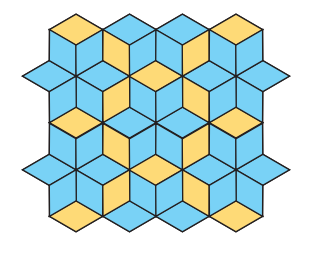
Use different colour combinations to make your own patterns.
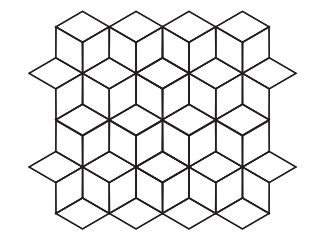

Have you seen this shape in any other design - on a wall, a dress, on a basket, a mat etc.?
Treasure Hunt
Franke and Juhi's mummy has hidden a surprise gift for both of them. But she wants them to find out through a treasure hunt. She has written some instructions here. Can you help Juhi and Franke in finding their gift?
a) Start from the tallest tree.
b) Go forward on the pathway.
c) From the sixth tile, turn left .
d) After moving a few steps again you will find a plant on your right hand side.
e) Colour the dress of the child playing closest to this plant.
f) Start moving again from the plant.
g) On the fourth tile, turn left again.
h) On the way, you will find the corner of the fourth tile is broken.
i) You will find a bat and a ball lying on the ground. Don't pick them up, just circle them.
j) Move ahead and turn right .
k) You will find a mango tree. A few mangoes can be seen on the tree. Colour 11 mangoes on the tree.
l) Also draw some grass near the mango tree and start moving again on the pathway.
m) When you go straight , you will find a house.
n) Behind that house there is a bag. Open it and you will find something sweet in it! Can you tell what their mother has kept in the bag?

Understanding of space will be facilitated if the treasure hunt worksheet is done in the class. This task will enhance skills of children in identifying positions (up, down, front, behind), distance (near, far), size (tall, small), corners and shapes. It will help if more such treasure hunts are given to children as an activity.
